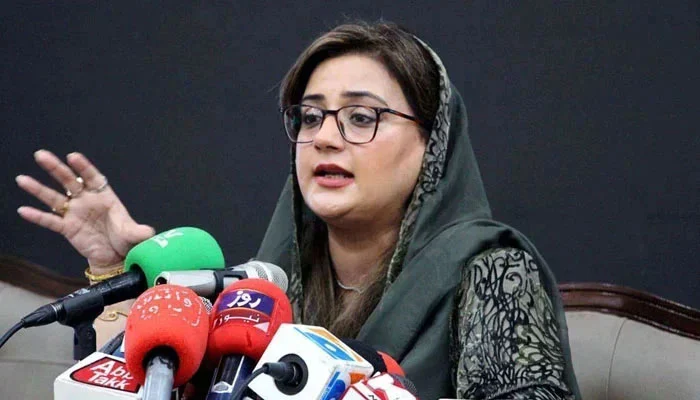Punjab Minister for Information Azma Bokhari strongly criticized the recent Supreme Court verdict regarding reserved seats, accusing it of introducing what she termed a “super” doctrine of necessity. Here’s a detailed summary of her remarks and the context surrounding the issue:
Background of the Supreme Court Verdict
The Supreme Court recently ruled in favor of Pakistan Tehreek-e-Insaf (PTI), declaring the party eligible for reserved seats despite not having sought them initially. This decision overturned the Peshawar High Court’s affirmation of the Election Commission of Pakistan’s (ECP) ruling from December 2023.
Azma Bokhari’s Criticism
In a press conference in Lahore, Azma Bokhari lambasted the verdict, alleging that it provided unwarranted relief to PTI, likening it to favoritism towards a “blue-eyed boy.” She criticized the perceived leniency shown to PTI without the party formally requesting reserved seats in the first place.
Implications of the Verdict
The minister expressed concern over potential ramifications, suggesting that the ruling could pave the way for political maneuvering such as floor-crossing, undermining the integrity of electoral processes. She emphasized the need for judicial and professional sectors to operate without bias or error, citing concerns over unchecked power.
Legal and Constitutional Standpoint
According to Bokhari, the verdict challenges constitutional principles by allegedly extending undue privileges without due process or consideration for affected parties. She argued that such decisions should adhere strictly to legal frameworks and constitutional boundaries to ensure fairness and transparency in governance.
Political Fallout and Public Perception
Bokhari’s remarks underscored broader concerns within the political landscape regarding fairness, accountability, and the rule of law. She criticized what she perceived as a lack of accountability and adherence to legal standards in the judiciary’s decision-making process.


